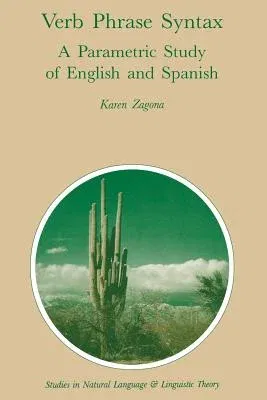Karen Zagona
(Author)Verb Phrase Syntax: A Parametric Study of English and Spanish: A Parametric Study of English and Spanish (Softcover Reprint of the Original 1st 1988)Paperback - Softcover Reprint of the Original 1st 1988, 1 October 2011

Qty
1
Turbo
Ships in 2 - 3 days
In Stock
Free Delivery
Cash on Delivery
15 Days
Free Returns
Secure Checkout
Part of Series
Studies in Natural Language and Linguistic Theory
Print Length
214 pages
Language
English
Publisher
Springer
Date Published
1 Oct 2011
ISBN-10
940107724X
ISBN-13
9789401077248
Description
Product Details
Author:
Book Edition:
Softcover Reprint of the Original 1st 1988
Book Format:
Paperback
Country of Origin:
NL
Date Published:
1 October 2011
Dimensions:
23.39 x
15.6 x
1.24 cm
ISBN-10:
940107724X
ISBN-13:
9789401077248
Language:
English
Location:
Dordrecht
Pages:
214
Publisher:
Weight:
331.12 gm

